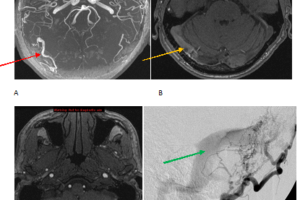
Dural arterio-venous fistulas are a rare but important category of intracranial vascular abnormalities. They are characterized by arterio-venous shunting within the dura and are most commonly a sequelae of trauma. The hypothesized... Read more »
Labyrinthitis is an inflammation of the bony labyrinth that impacts on the function of both the vestibular and auditory systems. Inflammation has a variety of potential causes, and therefore there are mulitple... Read more »
Along with vestibular neuronitis (VN) and benign paroxysmal positional neuronitis (BPPV), Meniere’s disease (MD) accounts for a majority of the cases of true vertigo seen by primary care providers. For considerable time,... Read more »
Benign positional vertigo (BPV; AKA benign paroxysmal positional vertigo or BPPV) is a common cause of dizziness characterized by sudden onset of dizziness with position change that resolves in 20-30 seconds. Read more »
Landua Kleffner Syndrome is one of a spectrum of childhood epileptic disorders and presents with acquired aphasia (loss of the ability to speak or understand speech after initially being able to). Read more »

Cobalamin (Vitamin B12) derivatives are cofactors in the synthesis of both amino acids and purines. B12 deficiencies, as a result, cause problems with both DNA and protein synthesis. Read more »
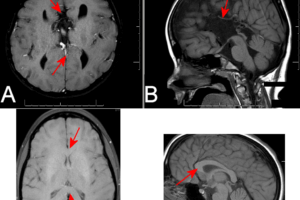
In this case, images show a congenital malformation in which the corpus callosum, which connects the left and right cerebral hemispheres, failed to develop. While this abnormality is rare, there are many... Read more »
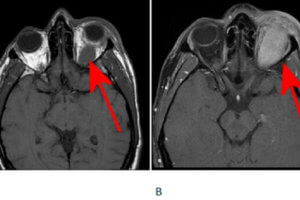
Orbital pseudotumor is the most common cause of a painful orbital mass in adults. It is a mass comprised of inflammatory cells (lymphocytes, macrophages etc) and fibrosis, is typically unilateral and infiltrative. Read more »
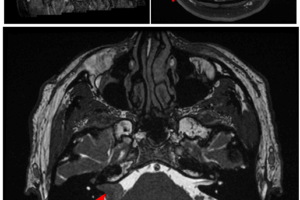
Vestibular schwannomas are benign extra-axial neoplasms that result from proliferation of the schwann cells associated with the eighth (vestibulo-auditory) cranial nerve. The commonly arise in the cerebellopontine angle and may extend along... Read more »
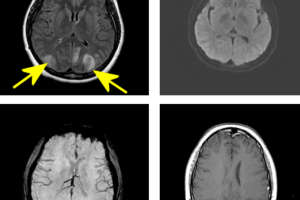
PRES is an disorder of cerebrovascular autoregulation commonly associated with hypertension and previosly referred to as eclampsia. Poor sympathetic regulation of the posterior cerebral arteries makes PRES more likely to involve the... Read more »
